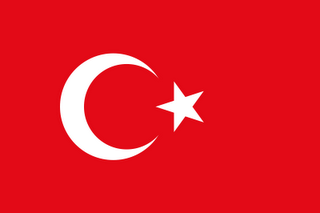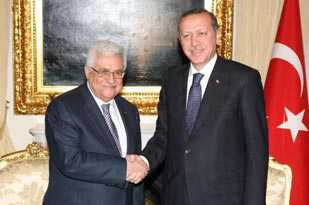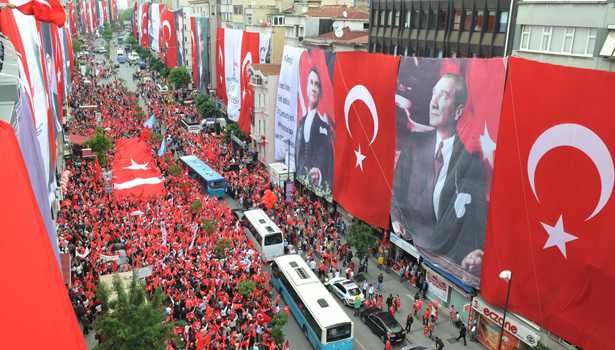By Ali Ezzatyar
 The Justice and Development Party (AKP) won the recent elections, as expected. But that’s not the most important election news coming out of Turkey. With a record number of seats being won by PKK-sympathizing Kurds running as independents, Turkey’s oppressed Kurdish minority sent a chilling message to the AKP government: deal with our problems, once and for all, or face unrest. In a new Turkey for which the world can’t seem to contain its praise, the world had better encourage Turkey to take heed.
The Justice and Development Party (AKP) won the recent elections, as expected. But that’s not the most important election news coming out of Turkey. With a record number of seats being won by PKK-sympathizing Kurds running as independents, Turkey’s oppressed Kurdish minority sent a chilling message to the AKP government: deal with our problems, once and for all, or face unrest. In a new Turkey for which the world can’t seem to contain its praise, the world had better encourage Turkey to take heed.
Its reelection on Sunday the 12th was a further reminder of how the widely popular AKP continues to dominate Turkey’s political landscape, and for good reason. It has managed a spectacular rise. Through a global economic downturn, Turkish unemployment was reduced and per capita GDP has doubled since the AKP took power. The Turkish economy grew at a staggering 9% last year; that is more than twice the rate of growth of the rest of the world. The AKP supervised this economic upturn all while making Turkey more democratic and influential internationally.
But if today’s unbounded optimism for Turkey demonstrates anything, it is that the world’s memory is terribly short. Turkey’s Kurds, who make up about a fifth of the country and much of Istanbul and the south-east, are still denied basic human rights. Admitting the mere existence of the Kurds was taboo in Turkey until recently.
The Kurdistan Workers Party (PKK), lead by its militant leader Abdullah Ocalan, resorted to separatist violence in the ’80s and ’90s to combat these failures. 40,000 deaths (mostly Kurdish), as well as the arrest or murder of hundreds of journalists and politicians, followed. During this period, foreign investment and tourism dwindled, the Turkish economy was in shambles, and military intervention in politics loomed on multiple occasions.
In the aftermath of Ocalan’s arrest in 1999, the Kurdish rebellion stalled. With every Kurdish political party banned, the AKP played on Kurdish frustration in its election campaign. The AKP’s perceived message of Islamic unity was attractive to Kurds; they saw it as a slap in the face to Turkey’s extreme secular, nationalist tradition. The combination of promises from Prime Minister Erdogan, minor concessions, and growing prosperity has mostly calmed violence throughout the last decade.
But Kurds, partially bolstered by the success and freedom of Kurds in Northern Iraq, are still unhappy. Erdogan’s “Kurdish Initiative” of two years ago never materialized, and is widely perceived as an election stunt in south-east Turkey. Meanwhile, the PKK, still widely popular in the Kurdish region, is making ominous threats of war. Abdullah Ocalan has recently stated from prison that armed rebellion will resume if Turkey does not negotiate with the PKK.
Kurds running as independents won 36 seats in Sunday’s elections, including seats in Istanbul. Most of these Kurds ran on a pro-PKK platform, and will go to parliament with strict demands.
Far from an encouraging show of Kurdish participation in a new democratic Turkey, Sunday’s elections are a warning to the Turkish state that Kurdish dissatisfaction is widespread. With countless pronouncements from newly elected Kurdish MPs about the need for drastic change, as well as the PKK’s military arm threatening a renewed civil war, the handwriting is on the wall. An Arab Spring type uprising by Turkey’s Kurds could devolve, and any armed conflict would undo the new and fragile and in many ways superficial gains the AKP has made in the last ten years. The West, likewise, will no longer have a model Middle Eastern democracy to point to.
The international community has an important role to play in encouraging the AKP to exercise its leverage with respect to the Kurdish question. First, Europe and the United States must use the ‘K’ word in their public relations with Turkey, signifying their belief that a serious human rights problem continues to exist. Second, as the AKP drafts a new constitution that can finally put the Turkish state’s discriminatory structural impediments behind it, the world needs to its apply diplomatic pressure to ensure a conciliatory approach with Turkey’s Kurds.
With particular encouragement from a Europe that is perceived as being increasingly friendly and dependent on Turkey, Erdogan has a powerful argument to advance to his citizens that Kurds must be accepted as equals at this pivotal juncture. Confrontation is brimming beneath the surface in Turkey, and without genuine regard for the Kurdish question, calamity could ensue.
via Lessons from Turkey’s elections: The AKP is dominant, but the Kurdish question is central | Tufts Roundtable Commons.





